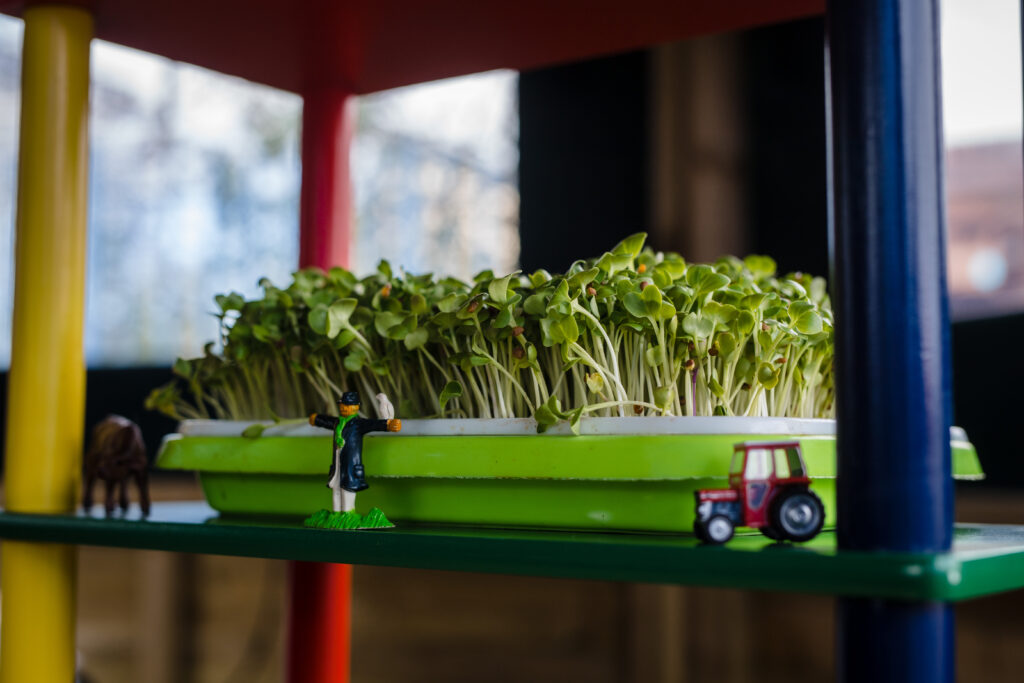Whilst the Social Partnership and Public Procurement Bill could have been stronger on global responsibility, Aileen Burmeister argues that Wales must continue to live up to the ambition of a Fair Trade Nation.
Fifteen years on from Wales becoming the world’s first Fair Trade Nation, I am constantly asking myself what more we can do as a country to take our global responsibilities seriously. How to make real impact to the lives and livelihoods of farmers and producers in low and middle-income countries, many of whom make the foods we love.
Humanitarian crises, the climate and nature emergencies, the impact of the Covid pandemic and the lingering economic slowdown are all adding to global poverty.
Over the last few months, Fair Trade Wales, along with Amnesty International, Cytun, Oxfam Cymru, Size of Wales, the WCIA and WWF Cymru, have been campaigning to strengthen the Social Partnership and Public Procurement Bill. Together we made a number of recommendations, primarily focused on placing a stronger commitment to global responsibility in the face of the Bill. Our campaign demonstrated how organisations can work constructively, across parties, to explore issues and find shared solutions. We worked closely with the Senedd Social Justice and Equalities Committee, in particular the chair Jenny Rathbone, Jane Dodds, Peredur Owen Griffiths and Joel James. I was also struck by the positive and constructive dialogue we had with the deputy minister Hannah Blythyn. Whilst the Welsh Government remained opposed to placing global responsibility more clearly on the face of the Bill, the Deputy Minister has provided a welcome and essential commitment to ensuring the Statutory Guidance will include detailed information on how a globally responsible Wales goal should be pursued through public procurement.
Wales rightly prides itself on being the world’s first Fair Trade Nation; and in its international strategy and Wales and Africa Action Plan, the Welsh Government has restated its commitment to promoting the adoption of ‘fair and ethical trade’. With an annual procurement spend of £6.3 billion, the Welsh public sector has a huge role to play in helping to drive responsible consumption and production, which is Sustainable Development Goal 12.
Innovative. Informed. Independent.
Your support can help us make Wales better.
But the SDGs are in jeopardy. Humanitarian crises, the climate and nature emergencies, the impact of the Covid pandemic and the lingering economic slowdown are all adding to global poverty. At the same time, awareness is growing of how our history contributed to this unequal world we live in. The UK ethical market grew by 23.7% from 2019 – 2020. The new Consumer Markets Authority Green Claims code has begun clamping down on false environmental claims in advertising, and companies are beginning to be taken to their Head Quartered country’s courts for violations of basic rights of people and communities in their global supply chains.
Whilst the Bill could have been stronger, our focus now must turn to making sure the Statutory Guidance lives up to the promise made by the Deputy Minister, and ensure that Wales is at the forefront of these trends. As we have recently been celebrating Fairtrade Fortnight 2023, I have been struck by conversations happening across Wales that show the futility in trying to separate the local and global within our communities. We are all global. At Fair Trade Wales we look forward to working further with the Welsh Government and public bodies to shape this guidance.
All articles published on the welsh agenda are subject to IWA’s disclaimer. If you want to support our work tackling Wales’ key challenges, consider becoming a member.
This article was edited by Kaja Brown thanks to the Books Council of Wales’ New Audiences Fund.





